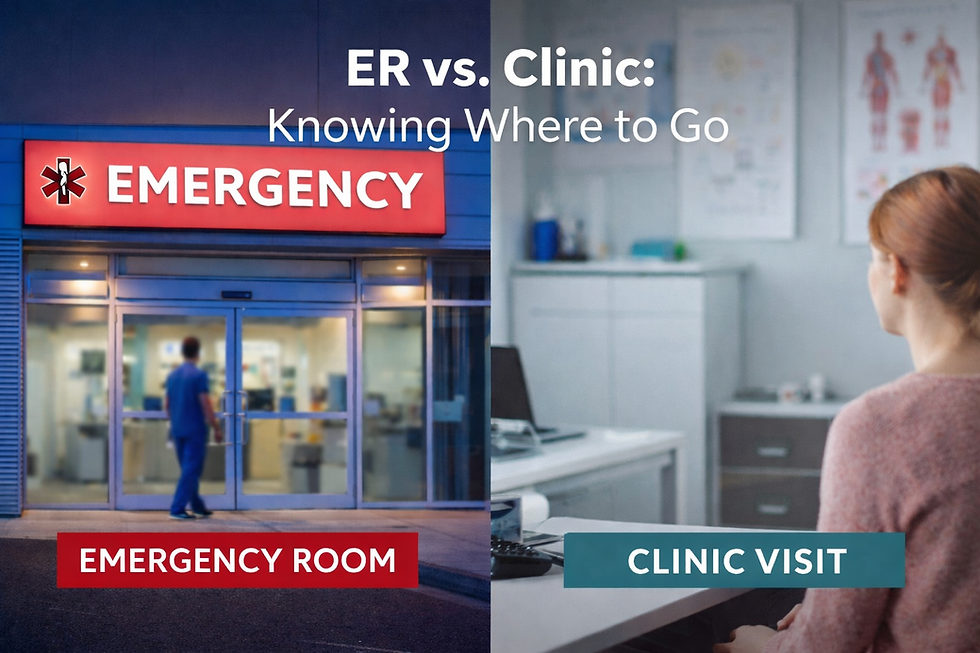The Silent Threat: How High Blood Pressure Affects Your Heart (and What to Do About It)
- Kiran Reddy
- Oct 24, 2025
- 2 min read

High blood pressure, or hypertension, often develops without noticeable symptoms — earning it the nickname “the silent killer.” Left unchecked, it can quietly damage your arteries, strain your heart, and increase your risk of heart attack, stroke, and heart failure.
At Dr. Kiran Reddy’s one-stop cardiology clinic, we see how early detection and proper management can completely change a patient’s outlook. Understanding what’s happening inside your body is the first step toward protecting your heart.
What Is High Blood Pressure?
Blood pressure measures the force of blood pushing against your artery walls. When this pressure stays consistently high, your heart must work harder to pump blood — eventually causing the heart muscle to thicken and your arteries to narrow or stiffen.
Ideal blood pressure: Below 120/80 mmHg
Elevated: 120–129 systolic and less than 80 diastolic
High (Stage 1 Hypertension): 130–139 systolic or 80–89 diastolic
High (Stage 2 Hypertension): 140/90 or higher
Even mild increases can have long-term effects if ignored.
Why It’s Dangerous
High blood pressure doesn’t just affect your heart — it impacts your entire cardiovascular system. Over time, it can:
Damage arteries, making them less flexible and more prone to plaque buildup
Increase the risk of heart attack and stroke
Weaken the heart muscle, leading to heart failure
Affect other organs, including the kidneys, eyes, and brain
Because it rarely causes symptoms, many people don’t know they have it until serious complications arise.
How We Diagnose and Manage Hypertension
At Dr. Reddy’s clinic, we start with a simple but crucial step — accurate blood pressure measurement. If readings are elevated, we may perform additional tests such as:
Echocardiogram: To assess heart muscle thickness and function
Electrocardiogram (EKG): To detect abnormal rhythms or heart strain
Blood tests: To check kidney function, cholesterol, and blood sugar
From there, Dr. Reddy creates a personalized treatment plan tailored to your health, lifestyle, and goals.
How to Protect Your Heart
Lifestyle changes play a huge role in keeping blood pressure under control. Here’s where to start:
Move more: Aim for at least 150 minutes of activity each week.
Eat smarter: Choose fruits, vegetables, whole grains, and lean proteins.
Reduce sodium: Hidden salt in packaged foods can raise your pressure quickly.
Limit alcohol and caffeine: Both can increase heart strain.
Manage stress: Chronic stress can trigger blood pressure spikes.
Get regular checkups: Early monitoring helps prevent long-term damage.
For some, medication may be necessary — and with consistent follow-up, most people can keep their blood pressure at healthy levels.
High blood pressure may be silent, but its effects are not. The good news is that it’s entirely manageable with awareness, routine care, and the right support.
At Dr. Kiran Reddy’s one-stop cardiology clinic, we combine advanced diagnostics, personalized treatment, and preventive education to help patients take control of their heart health — one heartbeat at a time.




Comments